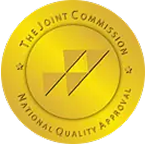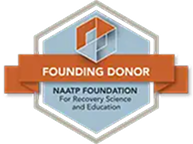How Long Does Addiction Recovery Take?

By David Sack, M.D.
When a patient discovers that they have an illness, one of their first questions is, “How long until I get better?” In the field of addiction treatment, there is an ongoing debate about what the answer should be. Some feel the only way to instill hope for recovery is to define a specific endpoint at which patients can consider themselves fully recovered.
But this ignores the true nature of addiction. Unlike a cold or a broken bone, research has confirmed that addiction is a chronic brain disease akin to heart disease or diabetes. There is always hope for recovery – a hope I see fulfilled every day through education and treatment. But for hope to be authentic, it must be directed toward living a healthy, fulfilling life while managing the disease, not blind hope for curing it.
Understanding that addiction recovery is a lifelong process, it benefits patients to understand what their journey may look like. What are the stages of recovery, and how long does each take? These questions can be answered any number of ways, but the following descriptions align with the guidelines set forth by the National Institute on Drug Addiction (NIDA).
Treatment
This stage begins the day the addict stops drinking or using drugs. For many, this happens in a drug or alcohol treatment program where they learn to address addiction holistically as a disease of mind, body and spirit.
In drug detox, the physiological symptoms of addiction subside in a relatively predictable period of time, but treatment of the psychological and spiritual aspects of addiction can be considerably more complicated. By learning about the disease of addiction, trying a variety of traditional and alternative therapies, participating in 12-Step recovery, and working within the family system to learn new skills, the addict builds a strong foundation for recovery.
Not surprisingly, research has shown a direct correlation between length of treatment and reduced risk of relapse. While there is no “right” length of treatment, we see the needed skill sets and insights developing at least 90 days into treatment, often through a combination of residential and outpatient treatment and aftercare. NIDA describes programs that last less than 90 days “of limited effectiveness” and recommends remaining in treatment “significantly longer.”
Early Recovery
In early recovery, sobriety is at its most vulnerable. Drug cravings, social and family pressures, the stresses of daily life, and a host of other triggers can lead to relapse. It is during this time that the individual re-learns how to live. They develop healthy coping skills, learn how to have fun without drugs or alcohol, develop relationship and problem-solving skills, and get to know who they are sober.
Maintenance
Once an individual has remained abstinent for 90 days or more, the focus becomes applying the skills learned in drug rehab to every area of life. As recovering addicts reintegrate into daily life, they may feel disoriented and must look to 12-Step recovery and outpatient support to stay grounded in their recovery. The maintenance stage is also an ideal time to revisit lessons that may have been forgotten or never learned in earlier stages.
Advanced Recovery
Around the five-year mark, many individuals who have maintained their sobriety report feeling “recovered.” But without ongoing maintenance relapse remains a threat, even decades later.
Advanced recovery is an ongoing growth and continuation phase. It is about enjoying life, healing relationships with self and others, and giving back. It is also a time for continuing to address co-occurring mental health disorders and other issues that drove the addiction. To combat complacency, the recovering addict must explore growth opportunities such as going back to school, advancing their career, finding new hobbies and interests, and making friends who are supportive of their recovery.
A Celebration of Life
So the answer to “How long will it take to recover?” in some ways is quite simple: It takes a lifetime. But the process itself is deeply personal, and varies in length and complexity depending on the particular individual, their support system, environmental influences, cultural context and other factors. The fortunate ones may catch on quickly and never relapse, while others may struggle for years. At the core, the disease is the same.
Every individual recovers in their own way and in their own time. Typically, the early stages are the hardest until the individual stabilizes and achieves a baseline level of functioning. Addiction may be part of their life forever, but so is the new “family” created among those in recovery – one that sees each day of recovery not as an exercise in disease management but as a celebration of life.
Article from PsychCentral
www.blogs.psychcentral.com






